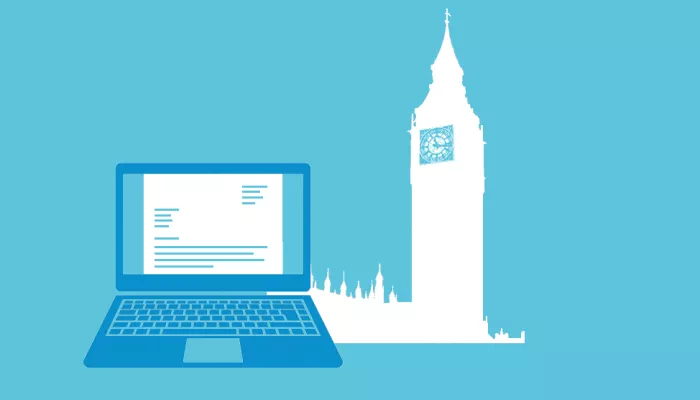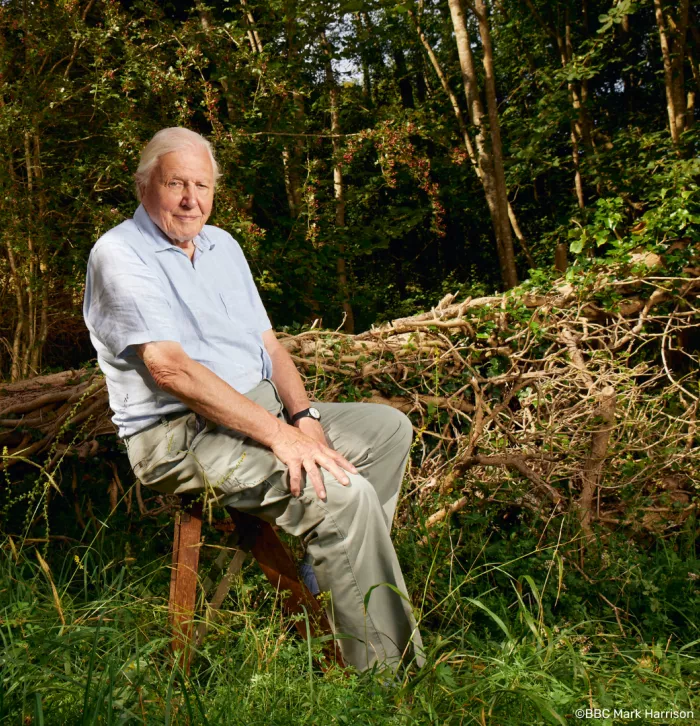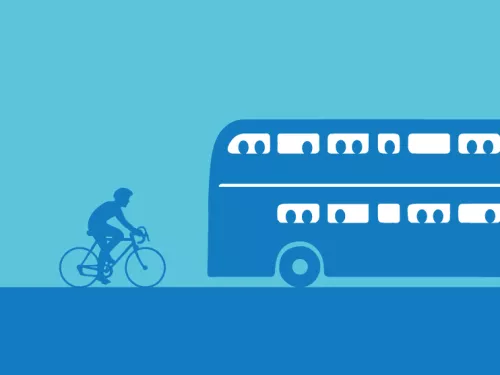
How to have an eco-Christmas
Whether you celebrate a big family Christmas, or you just give out a few cards to your friends and neighbours to wish them a happy time, here are some quick tips for a greener Christmas!

By writing to your MP or meeting them in person, you can help them to understand more about a local nature issue you care passionately about.
Whether it be a local wild place or species under threat - or that there is simply not enough wildlife where you live - you can ask your MP to help stop the loss of wildlife and prioritise climate isses.
You can write letters to your MP’s local constituency office, or send an email to their constituency email address. To find out who your MP is, and see their contact details, you can use this tool to enter your postcode and see who represents you:
Some MPs might not provide their constituency office address or email. In this case, write to their parliamentary office using their parliamentary email or House of Commons address.
Your MP’s House of Commons address will be:
[MP’s Name]
House of Commons,
London,
SW1A 0AA
MPs are very busy people, so don't be offended if they don't get back to you straight away.
Share your story:
MPs love personal stories. Share yours with them, choosing experiences that have taken place in your local area and meant a lot to you, or talking about how important wildlife and the natural world is to you and people around you. This way you can show your MP how much the natural environment in your area matters. Perhaps there are some moments shared with your Wildlife Trust or events you’ve attended that stand out?
Have a clear ask:
To make your letter or email as successful as possible, make sure you have some clear things to ask your MP to do for you. For example, you could ask them to back strong environment laws in parliament, or write to their Party Leader and their environment team to attend Bill readings important for wildlife. You could even ask them what they think they can do to help make this happen!
Add your address:
Finally, don't forget to put your full postal address on anything you write to your MP so they know you live in their constituency.
We know how frustrating and disheartening it is when your MP doesn’t seem to listen, repeatedly sends stock responses, or simply doesn’t respond to you at all. While it can feel futile, it is absolutely vital that constituents continue to make their concerns known to MPs about issues they care strongly about. MPs are publicly elected, and are obligated to listen to you, and respond to your concerns.
If everyone stops contacting their MP because they don’t think they’ll listen, the MP won’t hear the valid concerns of their constituents. They will likely start to feel the issue is no longer facing opposition. It is important to keep up the pressure to make sure an MP knows when they don’t have constituent backing. The more MPs that find themselves in this position, the more likely they are to question the government’s position.
We do see examples where MPs who were strongly opposed to certain developments or issues have done complete u-turns due to consistent engagement from their constituents, sometimes over several years.
At the same time, showing the people around you, in person or on social media, that you oppose an issue and are contacting your MP has a huge impact. Seeing that you’ve contacted your MP often encourages those around you to do the same, feeling encouraged and reassured that they’re not alone.
Taking action will always have more of an impact than not taking action at all.
Your best option for meeting your MP is to ask to meet them in your constituency. You may find it easiest to meet them during one of their constituency surgeries, which they hold at least once a month - many hold them most Fridays. This is when your MP meets their constituents to talk about things affecting them and for people to raise concerns about politics or local issues, so it's the perfect time to tell them why nature's recovery matters to you!
The first step for organising a meeting is to contact them or the people who work in their constituency office. You can find out who your MP is and their contact details by using this tool:
You can write to their constituency office by letter or email or call them on the number provided. If no contact details for their constituency is provided, simply write to the email address or call the number of their Parliamentary office. You could also write a letter requesting a meeting to this office - their Parliamentary address is:
[MP's Name]
House of Commons,
London,
SW1A 0AA
Failing this, other options available include visiting your MP's website or your local library for more information about where the surgery is held.
When you ask for a meeting, explain what you want to meet your MP about and offer some times and dates you’d like to meet. You may have to be flexible about meeting - MPs have full diaries but are good about making time for everyone.
Don't forget to put your full postal address on anything you write to your MP so they know you live in their constituency.
Share your story:
MPs love personal stories. Share yours with them, choosing experiences that have taken place in your local area and meant a lot to you. This way you can show your MP how much the natural environment in your area matters. Perhaps there are some moments shared with your Wildlife Trust or events you've attended that stand out? Can you think how even more wildlife in your area would help to improve it?
Have a clear ask:
To make your meeting as successful as possible, make sure you have some clear things to ask your MP to do for you. For example, you could ask them to write to their Party Leader, and their environment team to attend the reading of any environmental Bills for all the reasons shared above. You can also ask them what they think they can do to help make nature's recovery happen too!
Don’t worry if you’re not an expert:
It’s your MP’s job to listen to you and you will probably know far more than them - just be passionate about the issue.
Take a photo:
Ask your MP if you can take a photo with them - this is a great way to let others know that people have been speaking to them about nature’s recovery, and to encourage them to do the same. MPs often like the publicity too!


Whether you celebrate a big family Christmas, or you just give out a few cards to your friends and neighbours to wish them a happy time, here are some quick tips for a greener Christmas!

Learn how to reduce your travel emissions.

Palm Oil is a cheap, efficient form of vegetable oil, but a lot of species-rich tropical habitat is being destroyed to make way for it.